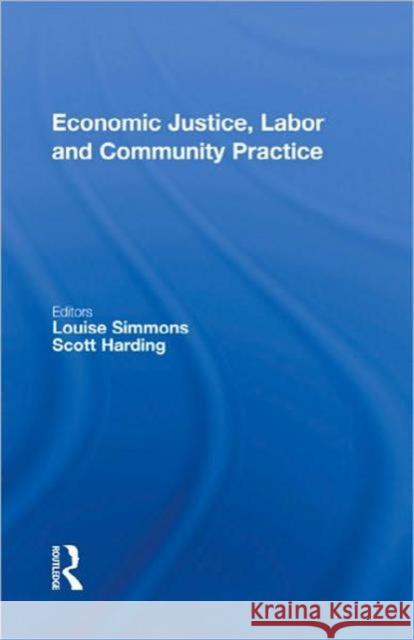Economic Justice, Labor and Community Practice » książka
Economic Justice, Labor and Community Practice
ISBN-13: 9780415559751 / Angielski / Twarda / 2010 / 254 str.
Economic Justice, Labor and Community Practice
ISBN-13: 9780415559751 / Angielski / Twarda / 2010 / 254 str.
(netto: 650,37 VAT: 5%)
Najniższa cena z 30 dni: 604,49
ok. 16-18 dni roboczych.
Darmowa dostawa!
Facing economic upheaval and growing inequality, people in local communities are fighting for economic justice. Coalitions from labor, grassroots community organizations, the faith community, immigrant communities and other progressive forces are emerging across the U.S. and Canada and winning better jobs, benefits from local development and better working conditions. A multi-disciplinary group of scholars and activists provide background and analysis of these struggles and offer insights into successful community practice. From the vantage points of community organizing, labor studies, political science, urban studies, social policy and active practitioners, this volume presents both background on the problem of economic and social inequality and portrays cases of how community practice is being redefined, how unions are pursuing their goals via labor-community coalitions, and the issues confronted as these new and vital alliances form. Community practitioners from social work, urban planning, active union members and leaders, labor educators, and those in the partnerships they have formed all will find useful insights from these analyses. This book was published as a special issue of the Journal of Community Practice.
Facing economic upheaval and growing inequality, people in local communities are fighting for economic justice. Coalitions from labor, grassroots community organizations, the faith community, immigrant communities and other progressive forces are emerging across the U.S. and Canada and winning better jobs, benefits from local development and better working conditions. A multi-disciplinary group of scholars and activists provide background and analysis of these struggles and offer insights into successful community practice.
From the vantage points of community organizing, labor studies, political science, urban studies, social policy and active practitioners, this volume presents both background on the problem of economic and social inequality and portrays cases of how community practice is being redefined, how unions are pursuing their goals via labor-community coalitions, and the issues confronted as these new and vital alliances form. Community practitioners from social work, urban planning, active union members and leaders, labor educators, and those in the partnerships they have formed all will find useful insights from these analyses.
This book was published as a special issue of the Journal of Community Practice.











